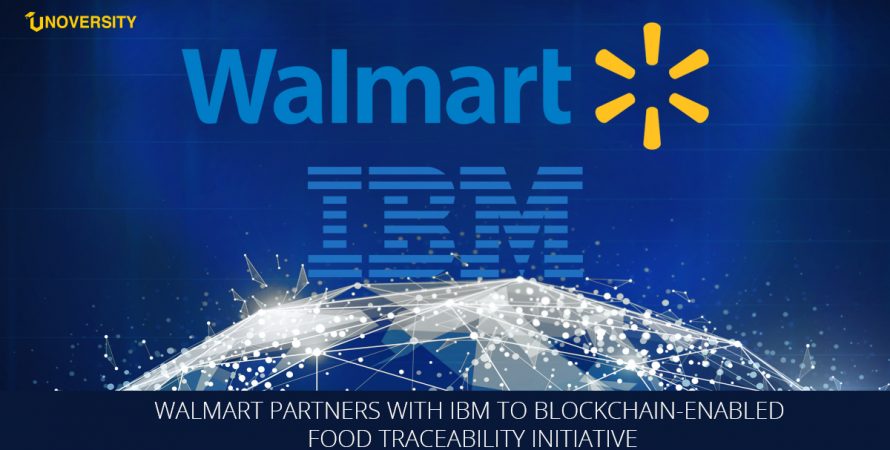The retail giant, Walmart is operating with IBM for food safety blockchain solution and on September 24th it made an announcement in an open letter to its leafy green vegetable suppliers to upload the data onto the blockchain by the end of September 2019. The retail warehouse section of Walmart, Sam’s Club is also said to be a part of this blockchain.
The letter issued by Walmart, to its suppliers, highlighted an E. coli outbreak, that occurred in May 2018 in romaine lettuce that affected more than 200 people due to salmonella found in products such as eggs and breakfast cereal.
After the outbreak, Walmart chose to execute blockchain technology that was being piloted over the past 18 months. The open letter read:
“Walmart is today announcing a new, blockchain-enabled Walmart Food Traceability Initiative that will increase transparency in the food system and create shared value for the entire leafy green farm to table continuum.”
Walmart and IBM entered into a partnership in 2017 to develop blockchain for digitizing the food supply chain process. The retail company using IBM Food Trust Solution specifically developed for this purpose.
Bridget van Kralingen, IBM’s senior VP for global industries told TechCrunch that the company built IBM Food Trust Solution using IBM Blockchain Platform, which is a tool built to help companies build, govern, and run blockchain networks. Kralingen also added that this tool is built using hyperledger fabric and it runs on IBM cloud.
Suppliers use various ways to record data and the process of sorting data and uploading that on blockchain could be an issue, it includes a range of approaches from paper to excel spreadsheets to sophisticated Enterprise Resource Planning systems (ERP). Not all suppliers will have blockchain experts for making the transition.
The letter also stated that by using blockchain the time taken to trace a food item from Walmart store back to its source is decreased to few seconds, as compared to the older method of tracking which takes “days or sometimes weeks.”
Walmart spokesperson Molly Blakeman said to TechCrunch that they have tried addressing this issue with IBM:
“IBM will offer an onboarding system that orients users with the service easily. Think about when you get a new iPhone – the instructions are easy to understand and you’re quickly up and running. That’s the aim here. Essentially, suppliers will need a smart device and internet to participate,”
The vision for integrating blockchain for food supply chain is to build customer trust through transparency. Charles Redfield, executive vice president of food for Walmart U.S., said:
“We have to go further than offering great food at an everyday low price. Our customers need to know they can trust us to help ensure that food is safe. These new requirements will help us do just that.”
Preciously, blockchain for food supply tracking was examined by the United Kingdom food regulator, Food Standard Agency (FSA). The technology was tested as a regulatory tool to guarantee compliance in the food sector. In July the regulator published the report and it stated that the technology was combined into a cattle slaughterhouse, where both the entities were authorized to access data in order to increase transparency in the food supply chain.
Sian Thomas, Head of Information Management for FSA stated:
‘This is a really exciting development. We thought that blockchain technology might add real value to a part of the food industry, such as a slaughterhouse, whose work requires a lot of inspection and collation of results.”
‘Our approach has been to develop data standards with industry that will make theory reality and I’m delighted that we’ve been able to show that blockchain does indeed work in this part of the food industry. I think there are great opportunities now for industry and government to work together to expand and develop this approach,” Thomas added






Cryptocurrency Hedge funds in India